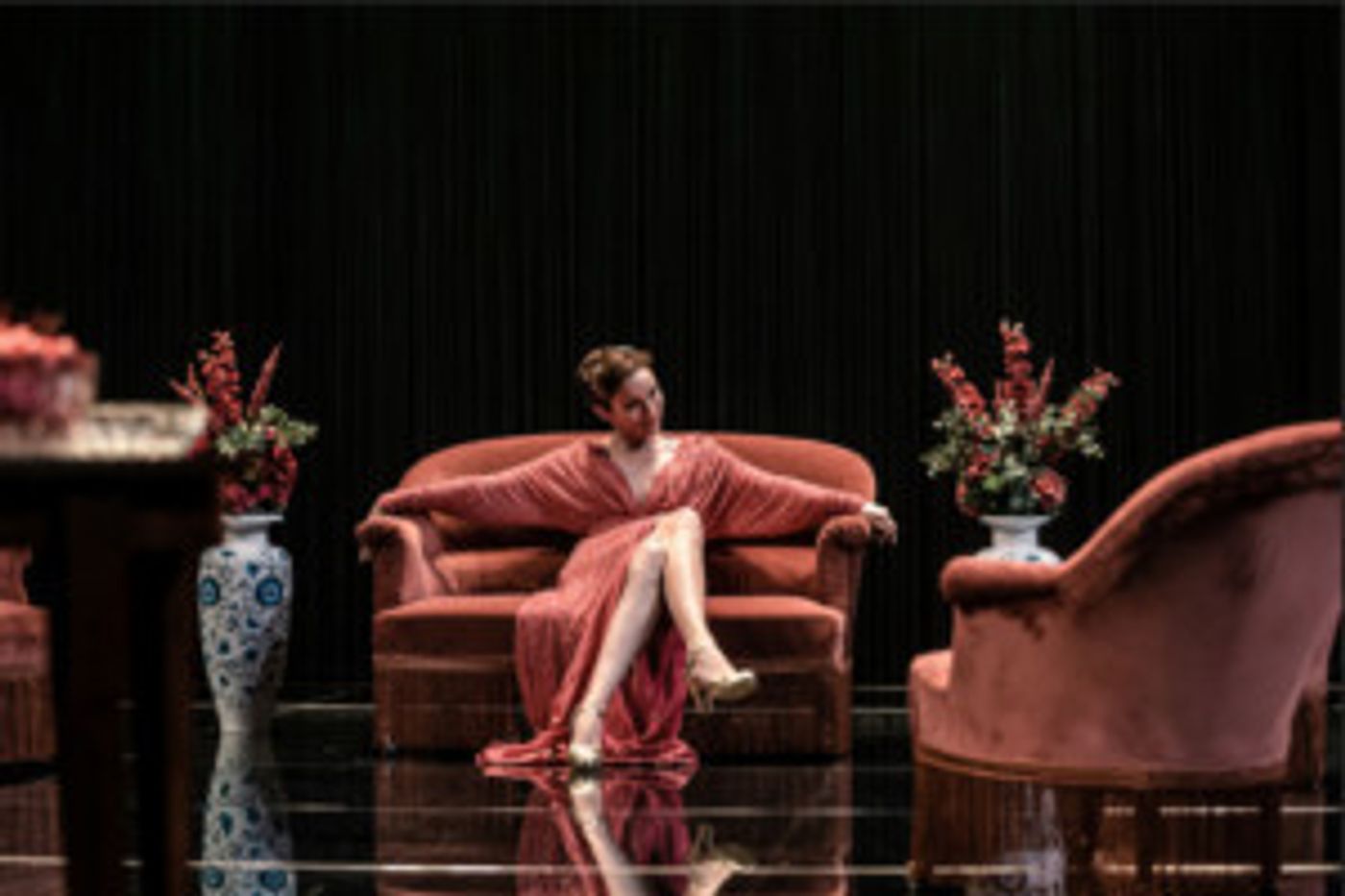Review: PLENTY, Chichester Festival Theatre

![]() At 17, Susan is in occupied France, a courier for the Special Operations Executive, ferrying guns and information to spies whose job was to tie down German forces with local skirmishes and disruptions. It sounds a long way from James Bond territory, but, like all war, it may have been 99% boredom and 1% excitement - and that 1% was exhilarating, energising and, it transpires, irreplaceable.
At 17, Susan is in occupied France, a courier for the Special Operations Executive, ferrying guns and information to spies whose job was to tie down German forces with local skirmishes and disruptions. It sounds a long way from James Bond territory, but, like all war, it may have been 99% boredom and 1% excitement - and that 1% was exhilarating, energising and, it transpires, irreplaceable.
Back on civvy street, in the grey rubble of post-war England, Susan finds that life is 100% boredom, but, with the whiff of danger (and the adrenaline that brings) in her nostrils forever, she seeks the same thrill in transgression.
Susan is a fictional character but, as the excellent programme notes, her travails in adjusting to life after the war were not uncommon amongst the women of the SOE - the 26 who survived.
She falls in with a bohemian crowd - but London in the early 50s is no New York nor Paris. She indulges her sexual appetites - but none can match the fantasy of the SOE parachutist she rescued in a French forest. She seeks the challenge of motherhood - but without marriage, as her self-loathing curdles into a shrill contempt for all mankind.
She has no place.
Written in 1978, David Hare's classic play appears to have acquired a generational resonance. Susan is, of course, England - or rather, a certain class of Englishman - bitter about the lack of "plenty" after the exhausting victory of 1945, bitter about loss of face and prestige over the Suez Crisis of 1956, bitter about the transition to a post-industrial economy already underway when the play premiered in 1978 and now bitter about the seemingly intractable embrace of Europe.
Mental illness is also a key theme, Hare's presentation of something short of the worst wartime Post-Traumatic Stress Disorder, but horribly debilitating and insistent, both 21st century in its sophistication and subtlety and 20th century in its brutal language ("...rescued her from the bin") and use of treatment as a punishment.
Rachael Stirling holds the narrative together, her Susan frightened, ecstatic, cruel, seductive, charming and charmless. She's never at ease, the old espionage agent's compulsive desire to look over the shoulder of the person to whom one is speaking, both a literal and metaphorical compulsion. Apart from a voice that sounded discomfitingly close to Susan's exact contemporary, Margaret Thatcher, it's a fine performance in surely one of the great female roles of British 20th-century theatre.
The damage Susan does to herself is clear (she's always "moving on", but always stuck with herself), but it's left to her husband and punchbag, the diplomat Brock, to show the effect is has on those close to her. Rory Keenan's descent from flirtatious fascination to despair is brilliantly portrayed, a decent loving man made his wife's jailer by her inability to function in a world that can never give her what she needs.
Amongst the fine support, Yolanda Kettle shines as would-be artist Alice, the dilettante surrogate daughter, whose on-off emotional, sexual and financial dependency on Susan appeals to her fantasy of replaying the rescue scene in the forest over and over again.
Nick Sampson almost steals the show as the supercilious Head of Personnel at the Foreign Office, painstakingly explaining to Susan that it is not talent nor even luck that determines progression, but behaviour - by which he means decorum. Her husband could fake it, but she, of course, cannot - and now he can't either.
Plenty is an intellectually stimulating play, as relevant, if not quite as shocking, 40 years on. The inchoate dissatisfaction with life that should be more emotionally nourishing, but isn't, has led to the rise of transgressive politicians in many parts of the Developed World. It's one reason why previously politically fatal admissions and revelations are brushed over, even celebrated.
Once there was a bit of Susan in all of us - now, or so it appears, there's quite a lot.
Plenty is at the Chichester Festival Theatre until 29 June.
Photo The Other Richard
Reader Reviews
Videos

